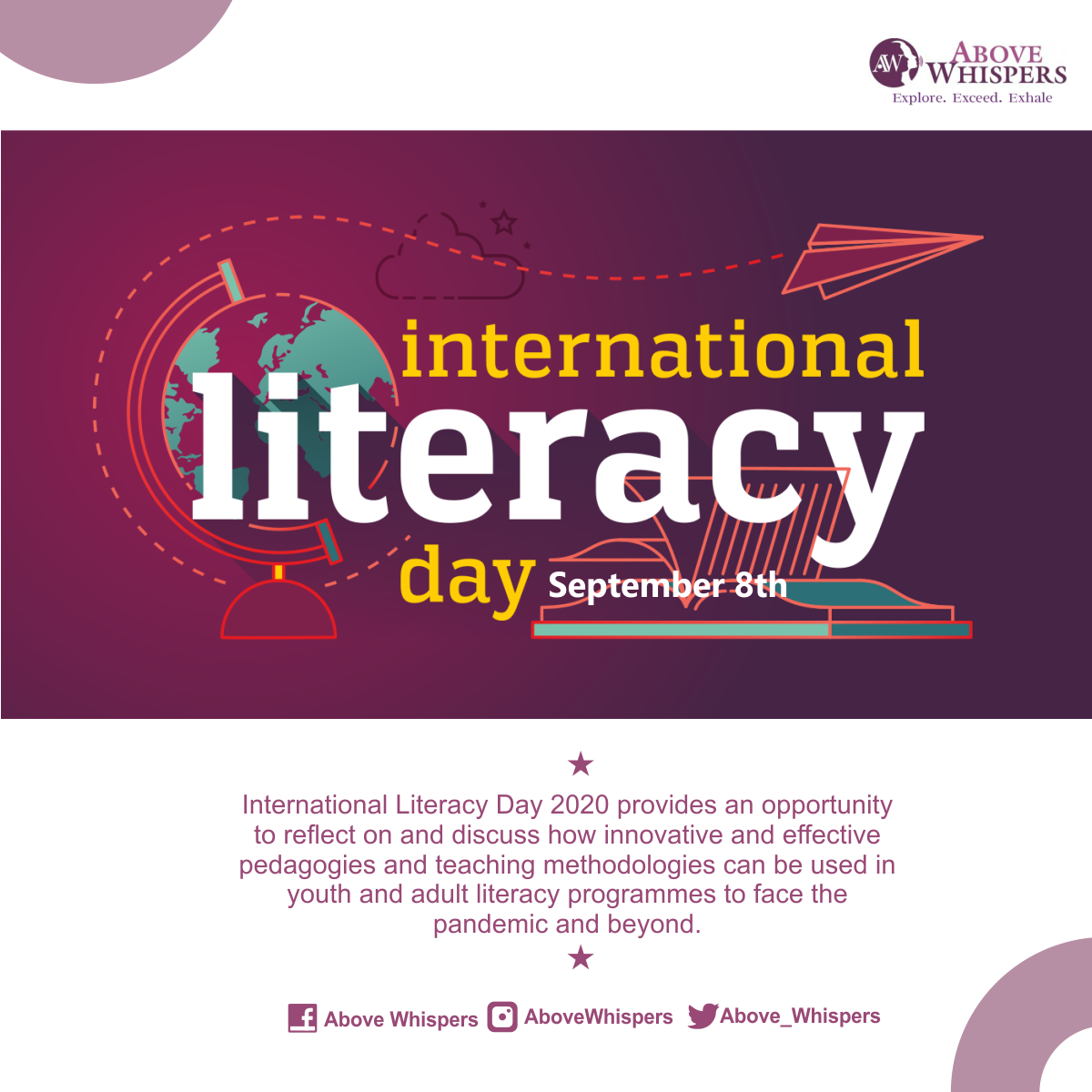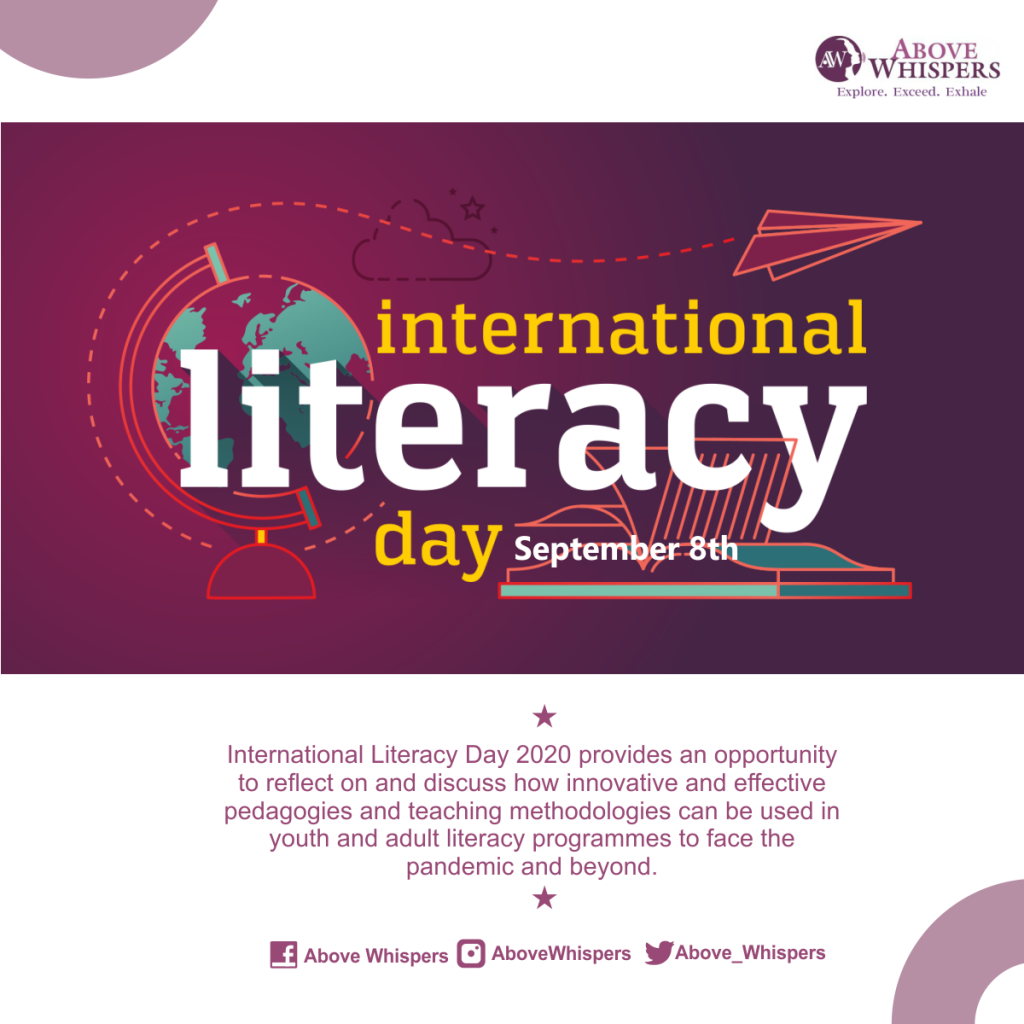 a
a
- 773 million adults and young people lack basic literacy skills;
- 617 million children and adolescents are not achieving minimum proficiency levels in reading and mathematics;
- During the initial phase of the pandemic, schools were closed disrupting the education of 62.3 per cent of the world’s student population of 1.09 billion;
- Adult literacy and education were absent in initial education response plans, therefore many youth and adults with no or low literacy skills have had limited access to life-saving information.
International Literacy Day 2020 focuses on “Literacy teaching and learning in the COVID-19 crisis and beyond,” especially on the role of educators and changing pedagogies. The theme highlights literacy learning in a lifelong learning perspective, and therefore, mainly focuses on youth and adults. The recent Covid-19 crisis has been a stark reminder of the existing gap between policy discourse and reality: a gap that already existed in the pre-COVID-19 era and negatively affects the learning of youth and adults, who have no or low literacy skills, and therefore, tend to face multiple disadvantages. During COVID-19, in many countries, adult literacy programmes were absent in the initial education response plans, so most adult literacy programmes that did exist were suspended, with just a few courses continuing virtually, through TV and radio, or in open air spaces. What is the impact of the COVID-19 crisis on youth and adult literacy educators and teaching and learning? What are the lessons learnt? How can we effectively position youth and adult literacy learning in global and national responses and in strategies for the recovery and resilience-building phase?
By exploring these questions, International Literacy Day 2020 provides an opportunity to reflect on and discuss how innovative and effective pedagogies and teaching methodologies can be used in youth and adult literacy programmes to face the pandemic and beyond. The Day will also give an opportunity to analyse the role of educators, as well as formulate effective policies, systems, governance and measures that can support educators and learning.
Background
The 8th of September was proclaimed International Literacy Day by UNESCO in 1966 to remind the international community of the importance of literacy for individuals, communities and societies, and the need for intensified efforts towards more literate societies. The issue of literacy is a key component of the UN’s Sustainable Development Goals and the UN’s 2030 Agenda for Sustainable Development.
The UN’s Sustainable Development Agenda, adopted by world leaders in September 2015, promotes universal access to quality education and learning opportunities throughout people’s lives. Sustainable Development Goal 4 has as one of its targets ensuring all young people achieve literacy and numeracy and that adults, who lack these skills are given the opportunity to acquire them.

